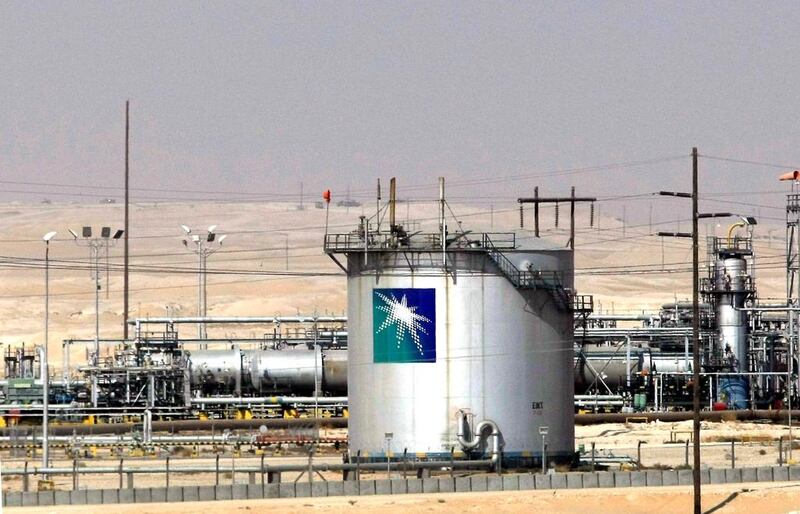Saudi Aramco has confirmed that it is weighing up an initial public offering of shares in a move that could create the most valuable listed company in the world.
The plan, which will help the kingdom’s constrained finances as a result of continued low oil prices, would also be the biggest IPO in stock market history.
Even if Aramco were to only list 10 per cent of its shares, that could be worth up to $250 billion, according to estimates by some analysts who valued the company at a total $2.5 trillion.
Apple is the currently the world’s most valuable company, at $535bn, while the biggest ever IPO was by Alibaba of China at $25bn.
Aramco had issued a statement over the weekend saying that it “has been studying various options to allow broad public participation in its equity through the listing in the capital markets of an appropriate percentage of the company’s shares, and/or the listing of a bundle its downstream subsidiaries”.
The statement followed an interview in The Economist with the kingdom’s deputy crown prince Mohammed bin Salman, who said that a decision on a potential flotation “will be made over the next few months”.
“Personally I’m enthusiastic about this step,” Prince Mohammed said. “I believe it is in the interest of the Saudi market, and it is in the interest of Aramco, and it is for the interest of more transparency, and to counter corruption, if any, that may be circling around Aramco.”
Saudi Aramco said the proposal was consistent with the kingdom’s plans to privatise various parts of the economy and to deregulate various markets.
“This process will strengthen the company’s focus on its long term vision of becoming the world’s leading energy and chemical enterprise,” it said.
Jason Tuvey, Middle East economist with the London-based research consultancy Capital Economics, said that Saudi Aramco “could be worth anything from US$1trillion to $10tn”.
Bloomberg estimated that the company has oil reserves of about 260 billion barrels, which would mean that on a (very) conservative estimate of $10 per barrel, it would be worth at least $2.5tn.
Mr Tuvey said that it is “highly unlikely” that the government will cease control over Saudi Aramco’s operations, and if an IPO takes place the size of the stake floated would be relatively small (possibly just 5 per cent). Full privatisations of subsidiaries and downstream operations are possible, however.
“Nevertheless, the fact that [Prince Mohammed] has raised the possibility of privatising Aramco alone should be seen as a positive step towards more transparent policymaking.”
Ehsan Ul Haq, a senior oil market consultant at KBC Energy Economics, believes that Aramco itself will need to become much more transparent to attract investors.
“An IPO will make the thorough auditing of Aramco necessay, which would require not only an open organisation within the company but also to let others look at its oil reserves. Some people have expressed doubts about the kingdom’s oil reserves in the past,” he said.
Despite this, he believes that an IPO would be well supported, although he also expressed doubts about how much of the company’s shares would be made available – especially to overseas corporations.
Mr Tuvey agreed. "I suspect that even with low oil prices, investors would be keen to grab a slice of what is arguably the world's most valuable company and one of the most efficiently run firms in the kingdom," he said.
“That being said, concerns about political meddling in Aramco’s affairs as well as general geopolitical fears may be enough to put some off.”
The flotation would provide a much-needed source of income for Saudi Arabia at a time when low oil prices have played havoc with its revenues, curtailing the speed of its diversification efforts. Last year, the kingdom ran a budget deficit of $98bn – or 15 per cent of its GDP. Late last month, it set a budget of 840bn Saudi riyals for 2016 – a 2.3 per cent cut compared to the 860bn riyals spent in 2015. Transport and infrastructure spending were cut by 63 per cent to 23bn riyals, compared to 63bn riyals in 2015.
The prospect of such a big IPO will also have the investment banks and other advisers anticipating big fees. Advisers are yet to be named, although there has been speculation HSBC and JP Morgan would be in pole position as long-standing bankers to the kingdom.
mfahy@thenational.ae
fkane@thenational.ae
Follow The National's Business section on Twitter






